Three Northeastern brands that work closely with local farmers
Natural brands based in the Northeast enjoy tight relationships with local farmers, both on land and in the water. Meet three of them.

Natural and organic food brands get all of the attention. After all, it’s their bags of corn chips, cans of vegetable soup, boxes of chocolate-enrobed cherry popsicles and six-packs of lavender-infused kombucha that command space on grocery shelves and grab the attention of shoppers.
But without farmers, none of the brands would exist.
Most of the time, and largely for reasons of scale and price, brands work with intermediaries like distributors to gain access to the sacks of potatoes and crates of tomatoes they need to craft their products. But many brands, too, go out of their way to source at least some of their ingredients from local farmers. It’s an old-school approach to product development, and a common one for decades until efficient distribution models made it easy for brands to source from farms around the world, instead of from their neighbors.
The list of contemporary farmer-brand unions is a long one. We talked with three brands in the Northeast, all of them from Maine—the state with the most farms in New England—about their partnerships, and why they matter.
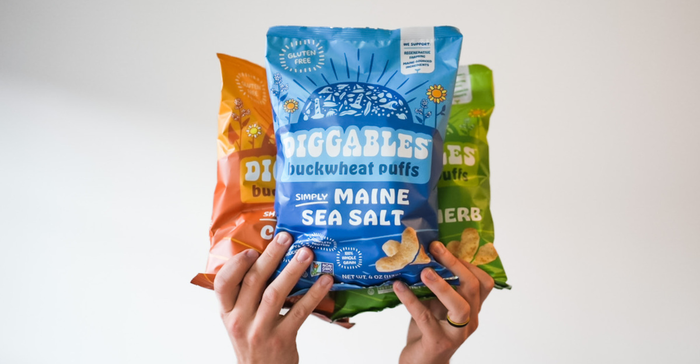
Diggables
Prior to the COVID-19 pandemic, Toby Ahrens, the founder of the buckwheat puffs company Diggables, never had a snack drawer.
“But all of the sudden we were working from home and the snack drawer appeared out of nowhere. But what I wanted wasn’t in there,” he said. “I wanted a better for you, low-calorie snack that had sustainable ingredients that were grown in Maine.”
He began researching Maine grains. The state’s most important crop, potatoes, offered starch as a possibility. Barley, too, figured into Maine’s economy, including spent grains from the state’s many breweries. As Ahrens pressed forward, somebody asked him if he had considered buckwheat. He knew nothing about it.
Today, Maine-grown buckwheat serves as the foundation of Diggables Buckwheat Puffs, which Ahrens launched in 2020. The brand offers three flavors, all of which became available on store shelves in June. Ahrens plans to showcase Diggables at New Hope Network’s Natural Products Expo East in September.
Buckwheat’s sustainable and health advantages, as well as its rootedness in Maine farming and culture, contributed toward Ahren’s embrace of the plant, which is not a grain but instead a member of the same taxonomical family as rhubarb and sorrel. The plant, which has historically been widely used as a cover crop in Maine (it thrives in cold climates) and is highly attractive to pollinators, has a low glycemic index, is gluten free and packed with antioxidants. In Maine, it serves as the foundation of a pancake-like dish called ploye; there’s even a ploye festival in Maine every August.
“What we enjoy about being from Maine is this ecosystem of companies supporting the Maine grain economy,” Ahrens said. “If we can play a small role at Expo East in raising awareness about buckwheat and regenerative agriculture and small farmers trying to do the right thing for sustainable agriculture, then the show will be a huge success, regardless of if buyers are seeing our brand.”
Regarding working in Maine, he added: “There’s no company in Maine with an `I’ story. It’s always a ‘we’ story.” He and Diggables work with farmers across the state for different ingredients and partnerships.
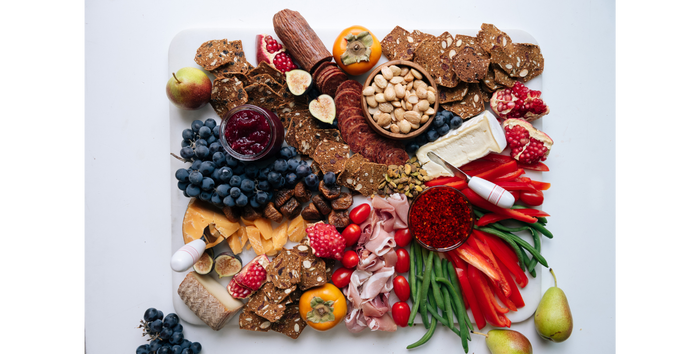
Maine Crisp Co.
Buckwheat is such a robust crop in Maine that it has spawned at least one other snack brand, Maine Crisp, which crafts thin crackers in a variety of flavors meant for cheese boards and the like. Maine Crisp also will introduce a new line of snacking crackers—an eat-from-the-box kind of product, rather than something that calls out for a topping—that will be introduced and available for sampling at Expo East.
The brand got its start when its founder, Karen Getz, began wrestling with a gluten intolerance, and couldn’t find a cracker that the former cheesemaker and dairy farmer felt was worthy of complementing fine cheese. On a drive across Maine, the New Englander noticed sprawling fields of buckwheat, said Maine Crisp Chief Executive Officer Lewis Goldstein. She researched the plant and discovered its importance to pollinators, along with benefits like high fiber and protein. Since it is used in Maine as a cover crop, it also supports regenerative agriculture practices.
Before long, she began making crisps out of buckwheat. Today, Maine Crisp is the only certified gluten-free crisp in the U.S. market, Goldstein said. All the buckwheat for the original line comes from a farm in northern Maine, Bouchard Family Farm. Much of the buckwheat in Diggables also comes from Bouchard.
The United States is the fourth-largest exporter of buckwheat in the world, and much of the Maine crop today heads overseas. Goldstein said Japan, France, Spain and Italy represent the largest importers. But he thinks it’s got legs in the United States, given its gluten-free properties, versatility with baking and cooking, nutrient density and compatibility with regenerative agriculture.
“Buckwheat is the next disruptor in the natural and organic food space,” Goldstein said.
As with Diggables, the company works to source other ingredients from the Pine Tree State. For example, Maine Crisp gets buckwheat, blueberries and maple syrup for its product line from Maine farmers. If the company can’t source from Maine, it aims to get it from New England.
Sales have been strong this year, up 150% in Whole Foods Market’s North Atlantic region. Maine Crisps are also available in many natural grocery stores as well as some Kroger and other traditional groceries.
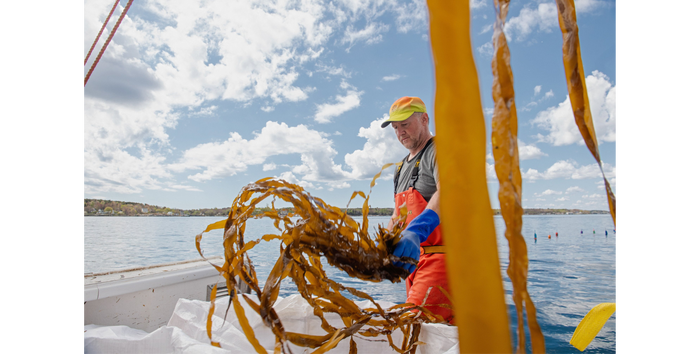
Atlantic Sea Farms
Few small companies in the domestic natural and organic products industry enjoy bonds with farms and farmers as strong as Atlantic Sea Farms. The Maine company, founded in 2009 under a different name, started the first commercially viable kelp farm in the United States, said Zoe Croft, director of sales for the company. Fast-forward 24 years, and the company now partners with 31 kelp farms along the coast of Maine to cultivate and harvest the kelp it needs to create its line of products, including sea veggie burgers, cranberry kelp cubes (for smoothies), fermented seaweed salad and raw kelp. The company also supports a thriving wholesale kelp business, selling the seaweed to brands across the value chain, from cosmetics to supplements to food companies. The brand's Basil Pesto Sea-Veggie Burgers won the 2022 Expo East NEXTY Award for Best New Product Supporting a Plant-Based Lifestyle.
“Our mission and goal is to introduce kelp farming to people already working full-time on the water, to diversify their income in the face of climate change,” said Croft. “By farming in the off season for kelp, we provide supplemental income, and we also are able to take care of one of the most nutrient-dense foods on the planet, that has an incredible climate impact in terms of the health of our oceans.”
The fishermen who turn to kelp farming during the off season are ideal: They understand how to tie knots, know how to operate boats in tempestuous waters, care about sustainable and are not afraid of hard work, Croft said. Atlantic Sea Farms supplies the farms with the cultivation seed for free (the seeds are actually live spores), and works with the Maine Department of Marine Resources on leases for areas of coastal Maine where farmers will hang ropes from buoys and cultivate kelp that can grow seven feet long. The company also offers a buy-back guarantee: It buys every usable blade of kelp from the farmers. Many of the “plots” are about 4 acres, Croft said. Last year, farmers harvested more than 1 million pounds of kelp.
Farming kelp doesn't just help heal the ocean, provide habitat to sea life and offer new sources of incomes for local fishermen. It also aids other aquatic farmers.
"There are cool studies that show the benefits of having kelp farms in close proximity to mussel and oyster farms," said Croft. The studies reveal that the practice can "increase shell strength and the amount of meat inside. They have a complementary life cycle."
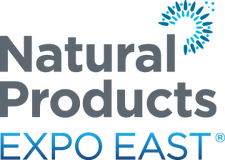
Natural Products Expo East Logo
Natural Products Expo East begins Sept. 20 at the Pennsylvania Convention Center in Philadelphia. In addition to education sessions and trade show, New Hope's Innovation Experience debuts this year. Learn more about Expo East's agenda, exhibitors, retail buyers and registration.
Read more about:
Natural Products ExpoAbout the Author
You May Also Like


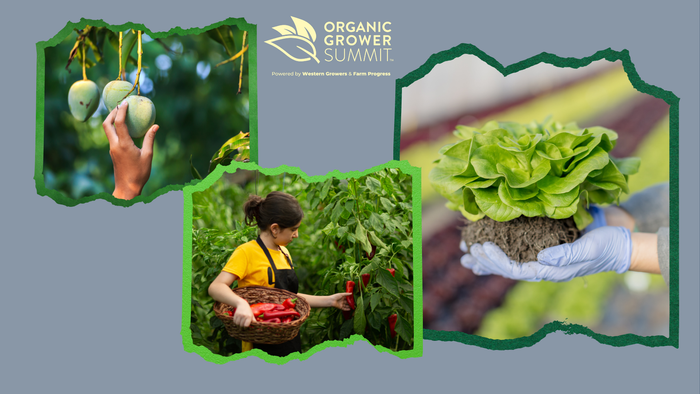
.jpg?width=700&auto=webp&quality=80&disable=upscale)
